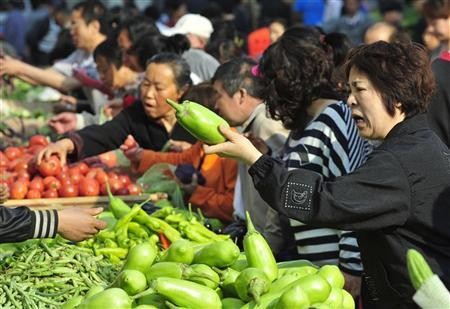In 2013, Chinese consumers spent more on basic needs, a study conducted by Euromonitor International revealed.
The market research and data analysis company looked into where the Chinese consumers' money went and found out that more than a quarter of their total consumption were spent on food and beverages, China Daily reported.
Specifically, 26.1 percent of China's total consumption expenditure in 2013 were spent on food and non-alcoholic beverages, 16.8 percent on housing, and 8.5 percent on clothing and footwear.
Furthermore, 7.4 percent of Chinese consumers' money in 2013 was spent on transport, 6.6 percent on health goods and medical services, 4.4 percent on household goods and services, 3.7 percent on electronics and home appliances, and 3.7 percent on hotels and catering.
In 2013, only 3.6 percent on jewelry and accessories and 2.1 percent on recreation and culture were spent by Chinese consumers, who are currently the largest, fastest growing and most world-changing consumers since post-war America, said CNBC.
In 2014, Chinese consumers have become more interested in natural and healthy food products, based on the United Kingdom-based research firm Mintel Group Ltd.'s report, The China Post said.
"Driven by rising incomes and the growing availability of imported and packaged foods, there are more food choices available than ever for Chinese people," Mintel senior consumer research analyst Laurel Gu explained.
"Consumers are therefore paying greater attention to ingredients and what exactly they are eating in a bid to make healthier lifestyle choices," Gu added.
With their changing patterns of economy, culture and society similar to their 20th century predecessors in the U.S., Chinese consumers are influencing how other countries do business and conduct their foreign policy.
Since Chinese consumers make 30 percent of all luxury purchases internationally, but make 60 percent of those purchases outside their country, China is not merely a market but a global demographic.
Before these interpretations on the Chinese people's buying power have been made, Alibaba, the world's largest e-commerce company, has long known how influential Chinese consumers are in the world market.



























